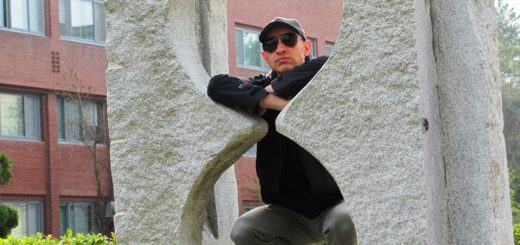Limbo’s Greatest Hits: # 8
My personal favorites among my essays are typically those which address universal and timeless themes of human existence — philosophical questions, to put it simply. On the other hand, it often happens that the items most popular with readers, at least upon initial appearance, are those which deal with matters of a more immediate and topical nature. People naturally get riled up over current events of particularly emotional or watershed significance, and therefore crave new perspectives — or perhaps verification of their own views on the subject — in the heat of such moments; whereas the unchanging concerns of human nature and the premises of a well-lived life tend to have a more simmering, long-term appeal. That is all understandable, and quite as it should be. In the end, both types of articles have their purpose and their benefit, and I am lucky enough to have been able to find serious readers for both types here in Limbo over the past (nearly) three years.
For example, perhaps the single most popular article I ever wrote, in terms of immediate quantity of attention, was “Hillary in Hiding,” a piece from 2012 dealing with Mrs. Clinton’s prolonged evasion of her “invitation” to the Benghazi hearings. It was picked up and linked just about everywhere in the American conservative media, including at the extremely influential mainstream aggregator site, Real Clear Politics. It therefore reached tens of thousands of readers within twenty-four hours of its original posting at American Thinker. On the other hand, according to my site’s analytics, the single most often read page here in Limbo since August of last year, not including the Home, About Me, and Contact pages, is the very theoretical “Individualism vs. Individuality“ chapter from The Case Against Public Education (from October 2016) — which I have nevertheless chosen not to include in this Greatest Hits countdown, as it is a book chapter, rather than a stand-alone article.
I am gratified to observe that the articles judged most popular over the past year here represent a pleasing mix of the topical and the permanent. But perhaps no essay in this countdown displays a more amusing combination of both ends of the spectrum than our (or rather, your) Number 8 entry, from September 28th, 2018, “The Kavanaugh Hearings: What Marcus Aurelius Said.” I wrote several articles on that most appalling and absurd Marxist tribunal or show trial back in the early autumn of 2018, and all of them garnered some readership and feedback, particularly my analysis of the psychology of the Democratic Party’s star witness in its character assassination attempt on Judge Kavanaugh. However, to my delight, I now see that the piece on that topic which received the most reads was this short musing in which I half-playfully inserted a little ancient wisdom into an all-too-modern circus.
With that by way of an introduction, here is #8 on our countdown of Limbo’s Greatest Hits since August, 2018. Enjoy.
The Kavanaugh Hearings: What Marcus Aurelius Said
I live in Korea, so I was sleeping when Thursday’s senate hearing began. When I awoke, around 2:30am Korean Time, I decided to put on headphones and listen to some of the hearing to put myself back to sleep. (Political posturing usually has that effect on me.) Instead, I heard several minutes of bland clumsiness from the GOP’s female prosecutorial mouthpiece questioning Christine Blasey Ford, and a bit of Senator Booker along with one other generic Democrat whose identity escapes me at the moment — just long enough to ensure that this hearing, far from sending me back to dreamland, would only send my blood pressure through the ceiling.
My morbid curiosity satisfied, I dumped the communist show trial in favor of an audiobook of Marcus Aurelius’ Meditations. Now I was awake but relaxed, engaged but calm, and finally able to drift back to sleep at pleasant altitudes, the all-too-human stench of Democratic moral rot and Republican mealy-mouthedness left happily far below me.
Among the first aphorisms Marcus Aurelius offered me, aptly timed I would say, was this triplet from Book Four (Gregory Hays translation):
6
That sort of person is bound to do that. You might as well resent a fig tree for secreting juice. Anyway, before very long you’ll both be dead — dead and soon forgotten.
7
Choose not to be harmed, and you won’t feel harmed. Don’t feel harmed, and you haven’t been.
8
It can ruin your life only if it ruins your character. Otherwise, it cannot harm you, inside or out.
A couple of hours later, I awoke to a later melody of this same stoic serenade, from Book Nine, to wit:
42
When you run up against someone else’s shamelessness, ask yourself this: Is a world without shamelessness possible? No. Then don’t ask the impossible. There have to be shameless people in the world. This is one of them. The same for someone vicious or untrustworthy, or with any other defect. Remembering that the whole class has to exist will make you more tolerant of its members.
In other words, to use today’s terms, “Is a world without Democrats possible? No. Then don’t ask the impossible. There have to be Democrats in the world. This is one of the them.”
I cannot honestly claim that I have achieved the tolerance Marcus Aurelius says will derive from remembering that the whole class of American neo-Marxists “has to exist.” But I’m trying. I really am.



